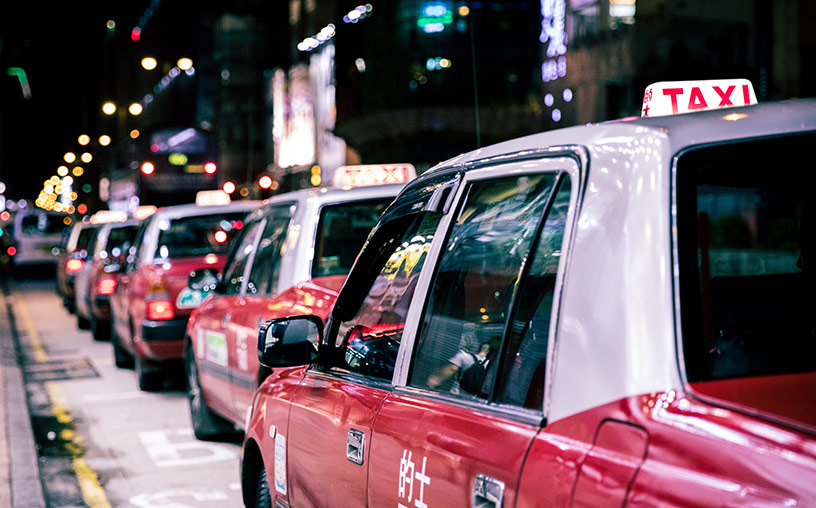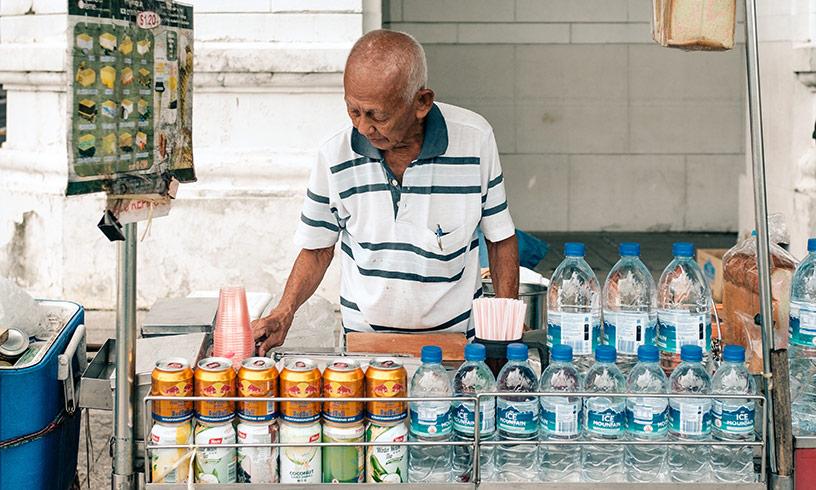7 Common Travel Scams to Avoid
There is nothing worse than that sinking feeling knowing you got scammed on your travels.
Learning about popular travel scams and being aware of how to avoid them (without being paranoid!), is the way to go!
Here are 7 common travel scams to avoid:
- Broken taxi meters
- The attraction is 'closed'
- The 'free' henna tattoo
- The 'filled straight from the tap' jig
- The boy and the biscuits
- The unofficial tour guide
- The dropped phone or wallet scam
#7. Broken taxi meters
Have you ever hopped into a taxi and been told that the meter isn't working and you'll have to fork over a set fare?
If so, chances are you were scammed into paying a lot more for your taxi trip.
Unfortunately, this scam is a popular one worldwide.
It can be easily avoided by refusing to ride unless the meter is switched on.
If there are no other taxis around, negotiate a fixed price that you're happy to pay.
Pretending to walk away is an excellent tactic to get the price down to something reasonable.

Protect yourself and your belongings with trusted travel insurance. Get a free quote online to see how affordable cover can be.
#6. The shop/museum/attraction you're going to is 'closed'
Play it friendly, say thank you and insist that you are happy to go to your original location.
#5. The 'free' henna tattoo
A common way for scalpers to earn a quick dollar - especially in Arabic countries - is women insisting on giving you a free henna tattoo.
They do so by often grabbing your arm and quickly doing a hack-job design.
They will then ask for money for the tattoo, and in some unfortunate cases, become quite aggressive until you hand over the cash.
A good way to avoid getting some unwanted henna tattoo work is to be firm with your “No thanks”. Put your hands in your pockets and avoid making eye-contact, too.
This scam is particularly popular in Morocco and Egypt - so watch out!

Been caught up with a delayed or cancelled flight? That can sometimes feel like you're being ripped off. Get to know your passenger rights for cancelled or delayed flights around the world and see if you're entitled to compensation.
#4. The 'filled straight from the tap' jig
Local entrepreneurial types have been known to collect empty water bottles from bins, fill them from a tap and sell them icy-cold from a tub of ice at favourite tourist sites.
While not as malicious or expensive as other scams, this one could make you sick if you end up drinking the local water when you’re not supposed to. Especially in destinations in Southeast Asia, Africa and South America.
Make sure you check that the bottle of water you buy is properly sealed, otherwise don’t buy it!

You should avoid drinking tap water in many countries around the world, particularly in Southeast Asia. See our other tips for avoiding the dreaded Bali Belly.
#3. The boy and the biscuits
Sit long enough in a bustling square, and you might see this one play out to unsuspecting tourists.
It’s almost like a theatre show if you ignore the poor person reaching for their purse.
A seller, usually a cute little boy or girl, will get their goods knocked over by a careless passerby.
There will be a bit of a commotion, and the seller will be left distraught and in tears over the spoiled goods.
Kindly, tourists will open their wallets and voila! The child will cheer up and head on their merry way.
Wait long enough and you’ll see them back again, setting up the biscuits they have collected from the dirt.
#2. The unofficial ‘official’ tourist guide
A scam that is quite easy to spot at tourist destinations around the world, is a "guide" who will insist they take you around your destination.
Whether that’s at Angkor Wat in Cambodia or the Pyramids in Egypt, they may even go as far as to insist that a guide is necessary.
If you don’t agree upon the price upfront, you might find yourself shelling out some serious cash.
Check what other visitors are doing before agreeing to anything.
You may not even need a guide at all. Take an information brochure or grab an audio headset and you’re set!

Japan is a popular destination for Kiwi travellers! Check out what kind of specific travel scams you need to avoid in Japan.
#1. The dropped phone or wallet
One of the more malicious scams will involve people ‘selling’ you back your belongings.
Drop your phone, and a sneaky scammer could pick it up and charge you a whole lot just to get it back.
Be careful with your belongings and always be aware of your valuables - so you hopefully don’t fall into this trap!
While getting scammed can be a shock to even the savviest traveller, some street smarts and careful pre-trip research can help you avoid most situations.